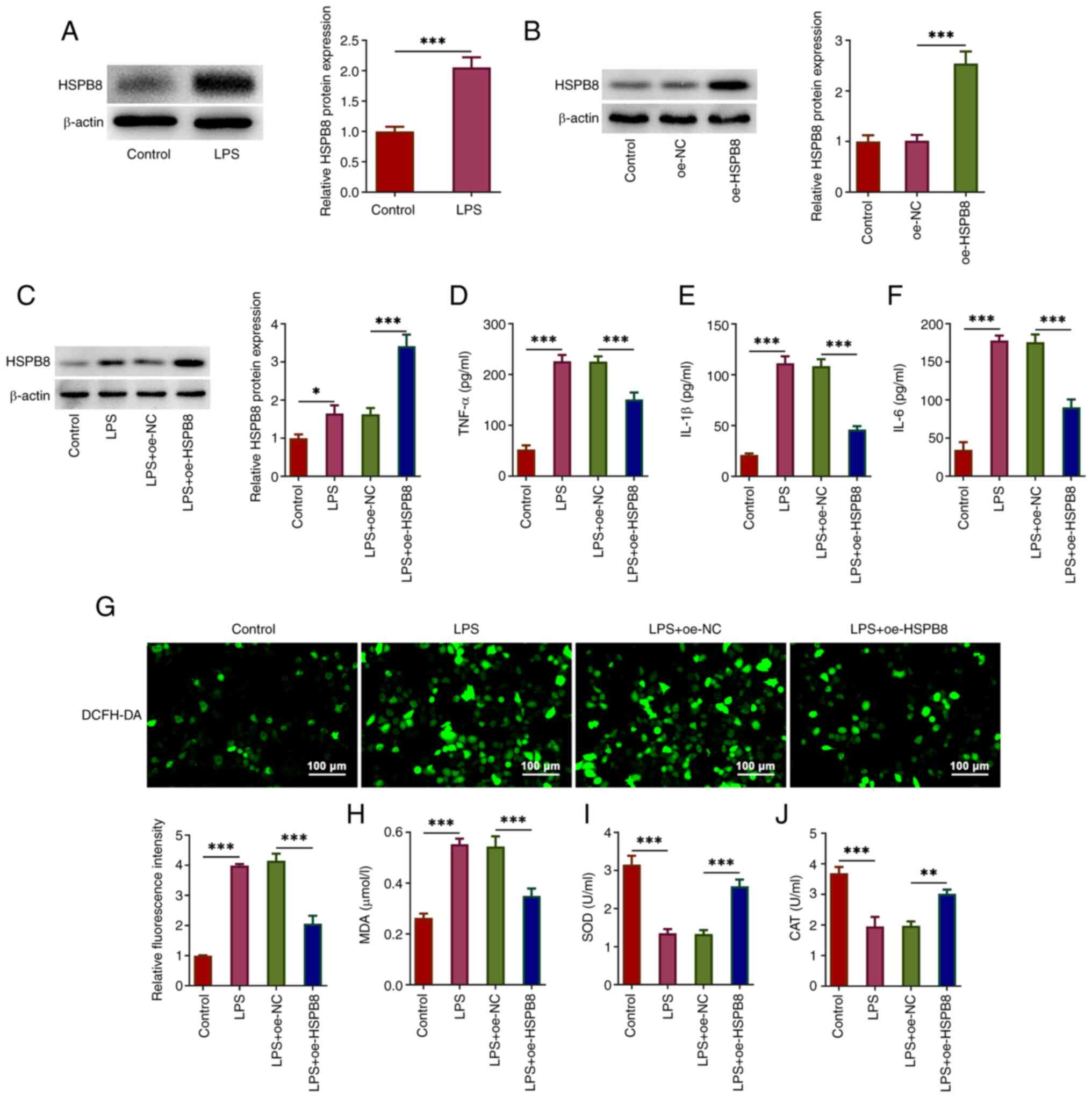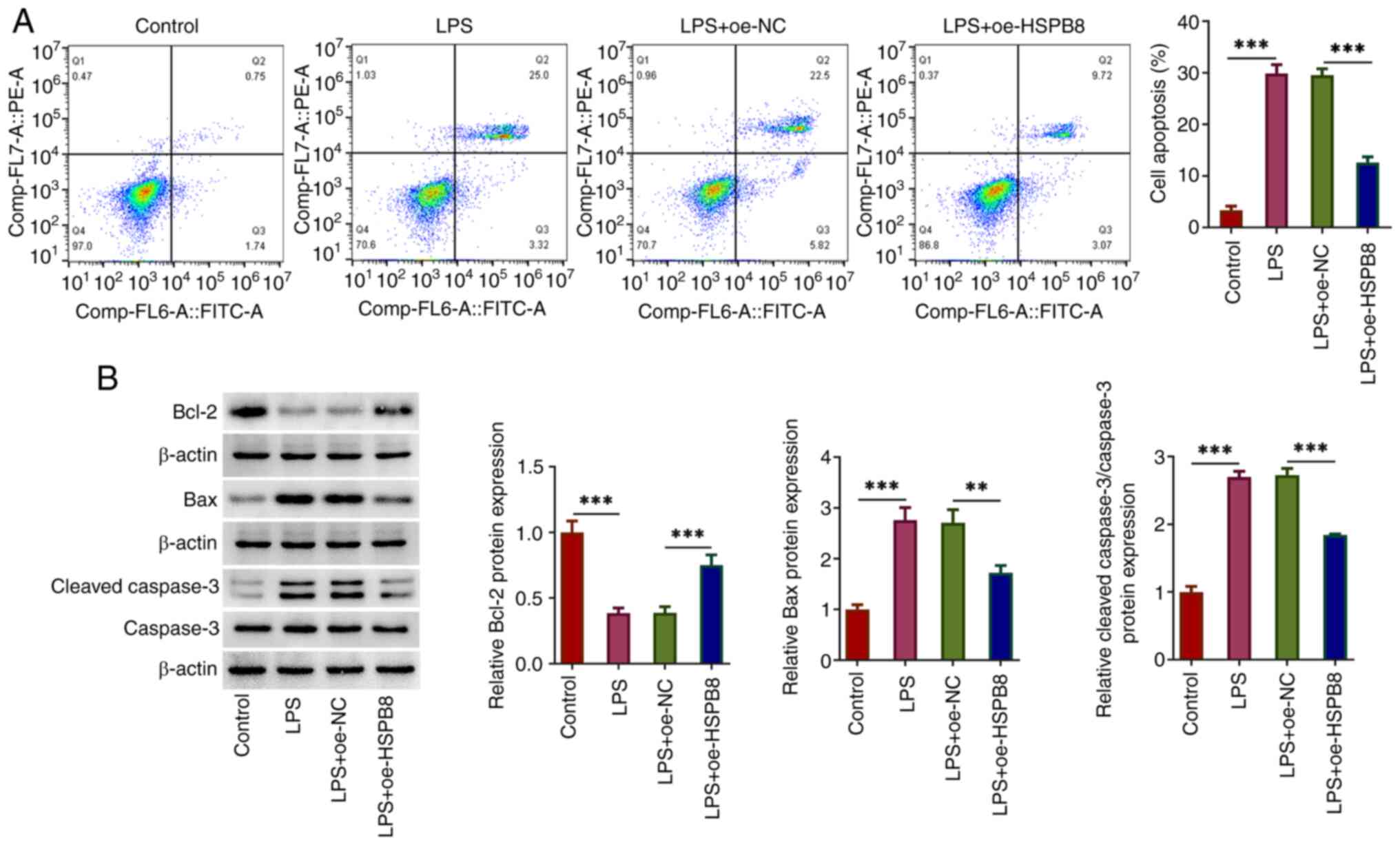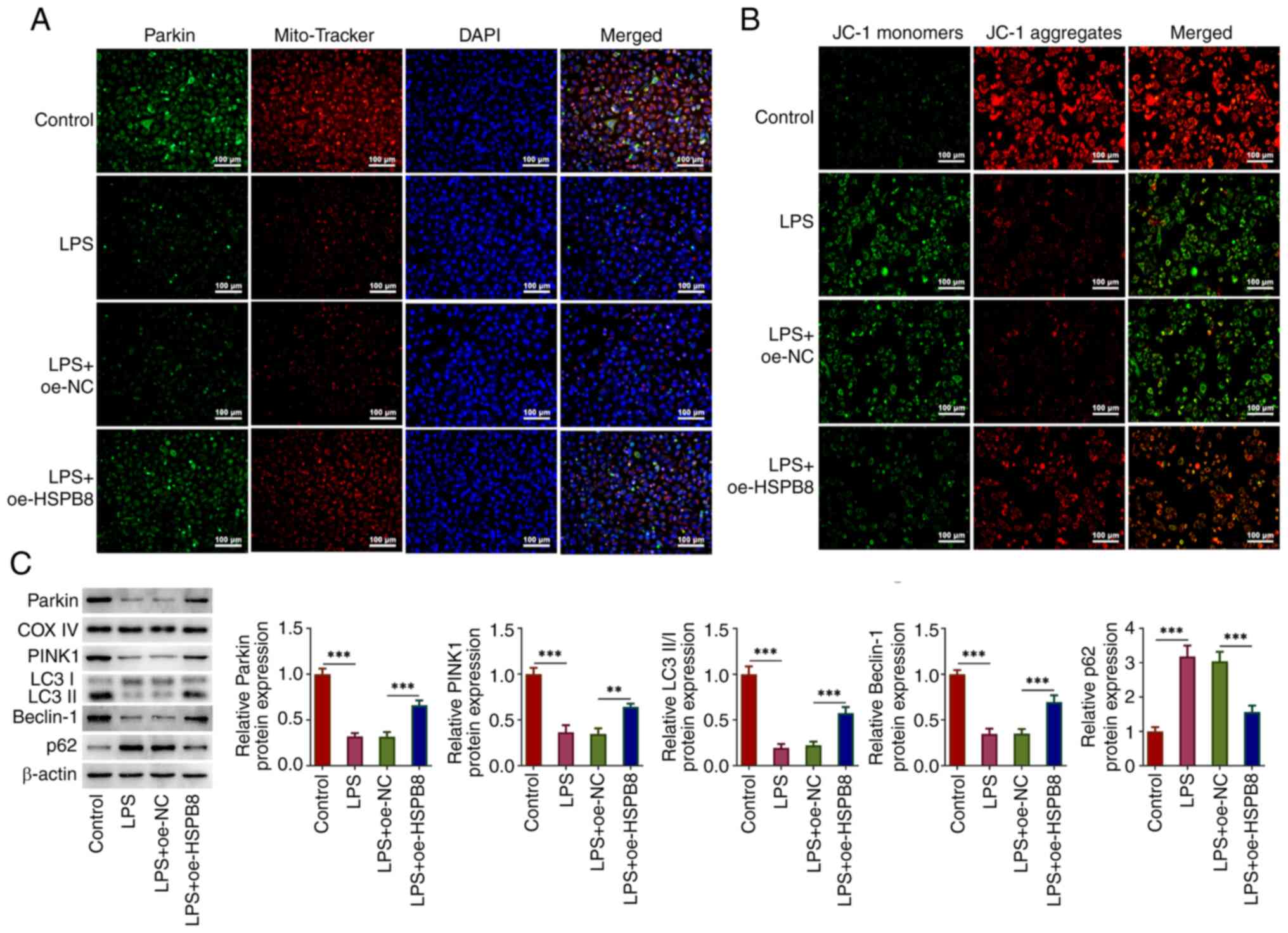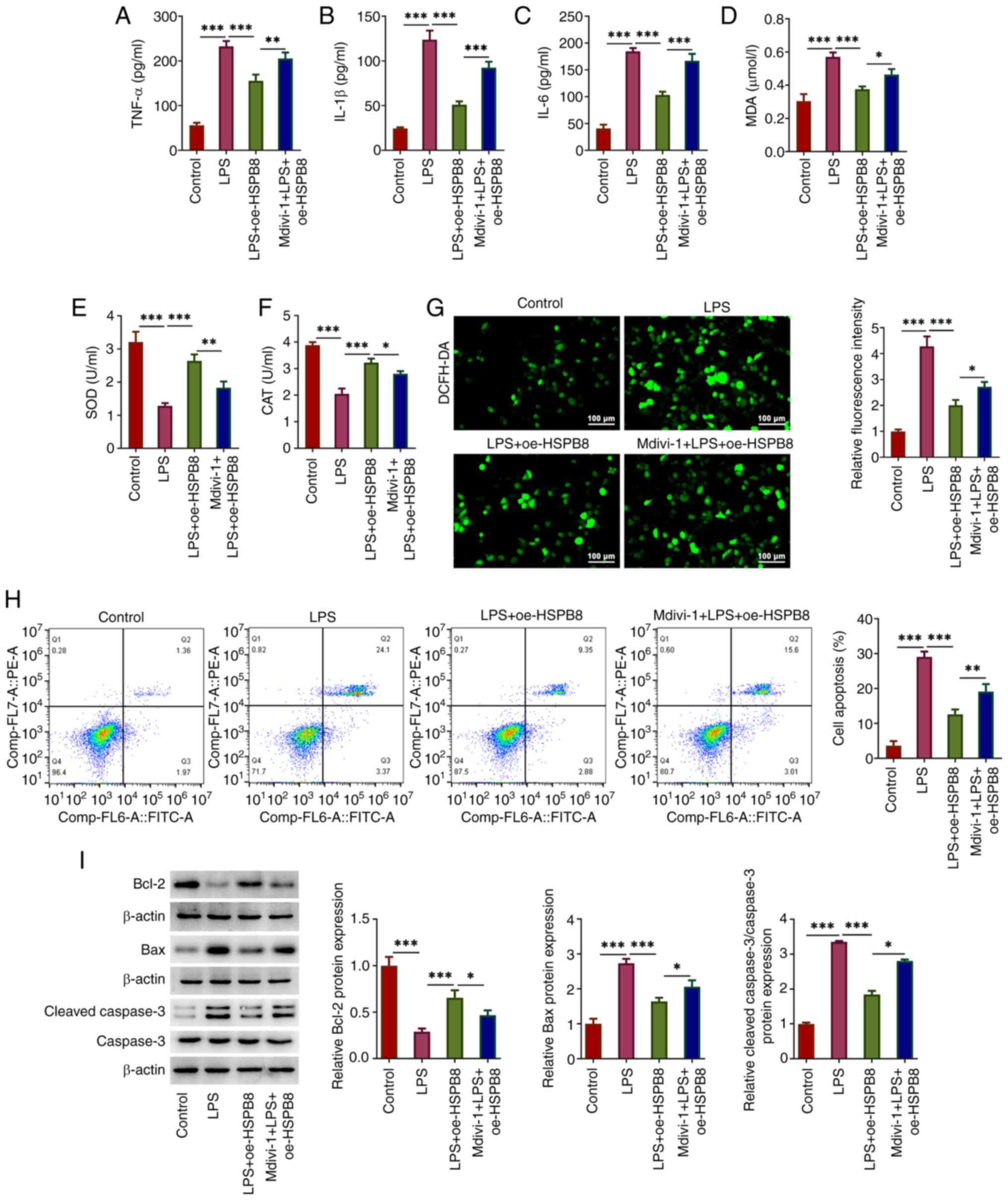|
1
|
Rudd KE, Johnson SC, Agesa KM, Shackelford
KA, Tsoi D, Kievlan DR, Colombara DV, Ikuta KS, Kissoon N, Finfer
S, et al: Global, regional, and national sepsis incidence and
mortality, 1990-2017: Analysis for the global burden of disease
study. Lancet. 395:200–211. 2020. View Article : Google Scholar : PubMed/NCBI
|
|
2
|
Markwart R, Saito H, Harder T, Tomczyk S,
Cassini A, Fleischmann-Struzek C, Reichert F, Eckmanns T and
Allegranzi B: Epidemiology and burden of sepsis acquired in
hospitals and intensive care units: A systematic review and
meta-analysis. Intensive Care Med. 46:1536–1551. 2020. View Article : Google Scholar : PubMed/NCBI
|
|
3
|
Jiang W, Ma C, Bai J and Du X: Macrophage
SAMSN1 protects against sepsis-induced acute lung injury in mice.
Redox Biol. 56:1024322022. View Article : Google Scholar : PubMed/NCBI
|
|
4
|
Singer M, Deutschman CS, Seymour CW,
Shankar-Hari M, Annane D, Bauer M, Bellomo R, Bernard GR, Chiche
JD, Coopersmith CM, et al: The third international consensus
definitions for sepsis and septic shock (sepsis-3). JAMA.
315:801–810. 2016. View Article : Google Scholar : PubMed/NCBI
|
|
5
|
Pham T and Rubenfeld GD: Fifty years of
research in ARDS. The epidemiology of acute respiratory distress
syndrome. A 50th birthday review. Am J Respir Crit Care Med.
195:860–870. 2017. View Article : Google Scholar : PubMed/NCBI
|
|
6
|
Englert JA, Bobba C and Baron RM:
Integrating molecular pathogenesis and clinical translation in
sepsis-induced acute respiratory distress syndrome. JCI Insight.
4:e1240612019. View Article : Google Scholar : PubMed/NCBI
|
|
7
|
He YQ, Deng JL, Zhou CC, Jiang SG, Zhang
F, Tao X and Chen WS: Ursodeoxycholic acid alleviates
sepsis-induced lung injury by blocking PANoptosis via STING
pathway. Int Immunopharmacol. 125:1111612023. View Article : Google Scholar : PubMed/NCBI
|
|
8
|
de Thonel A, Le Mouël A and Mezger V:
Transcriptional regulation of small HSP-HSF1 and beyond. Int J
Biochem Cell Biol. 44:1593–1612. 2012. View Article : Google Scholar : PubMed/NCBI
|
|
9
|
Kalmar B and Greensmith L: Induction of
heat shock proteins for protection against oxidative stress. Adv
Drug Deliv Rev. 61:310–318. 2009. View Article : Google Scholar : PubMed/NCBI
|
|
10
|
Ikwegbue PC, Masamba P, Oyinloye BE and
Kappo AP: Roles of heat shock proteins in apoptosis, oxidative
stress, human inflammatory diseases, and cancer. Pharmaceuticals
(Basel). 11:22017. View Article : Google Scholar : PubMed/NCBI
|
|
11
|
Li F, Xiao H, Hu Z, Zhou F and Yang B:
Exploring the multifaceted roles of heat shock protein B8 (HSPB8)
in diseases. Eur J Cell Biol. 97:216–229. 2018. View Article : Google Scholar : PubMed/NCBI
|
|
12
|
Rusmini P, Cristofani R, Galbiati M,
Cicardi ME, Meroni M, Ferrari V, Vezzoli G, Tedesco B, Messi E,
Piccolella M, et al: The role of the heat shock protein B8 (HSPB8)
in motoneuron diseases. Front Mol Neurosci. 10:1762017. View Article : Google Scholar : PubMed/NCBI
|
|
13
|
Yu Y, Hu LL, Liu L, Yu LL, Li JP, Rao JA,
Zhu LJ, Bao HH and Cheng XS: Hsp22 ameliorates
lipopolysaccharide-induced myocardial injury by inhibiting
inflammation, oxidative stress, and apoptosis. Bioengineered.
12:12544–12554. 2021. View Article : Google Scholar : PubMed/NCBI
|
|
14
|
Yu L, Liang Q, Zhang W, Liao M, Wen M,
Zhan B, Bao H and Cheng X: HSP22 suppresses diabetes-induced
endothelial injury by inhibiting mitochondrial reactive oxygen
species formation. Redox Biol. 21:1010952019. View Article : Google Scholar : PubMed/NCBI
|
|
15
|
Yang S, Tian J, Zhang F, Liu A, Xie B and
Chen Q: The protective effects of heat shock protein 22 in lung
ischemia-reperfusion injury mice. Biochem Biophys Res Commun.
512:698–704. 2019. View Article : Google Scholar : PubMed/NCBI
|
|
16
|
Ling J, Yu S, Xiong F and Li S: HSPB8
up-regulation alleviates cognitive dysfunction in a mouse model of
sepsis-associated encephalopathy. Int Immunopharmacol.
122:1104482023. View Article : Google Scholar : PubMed/NCBI
|
|
17
|
Nan CC, Zhang N, Cheung KCP, Zhang HD, Li
W, Hong CY, Chen HS, Liu XY, Li N and Cheng L: Knockdown of lncRNA
MALAT1 alleviates LPS-induced acute lung injury via inhibiting
apoptosis through the miR-194-5p/FOXP2 axis. Front Cell Dev Biol.
8:5868692020. View Article : Google Scholar : PubMed/NCBI
|
|
18
|
Givvimani S, Munjal C, Tyagi N, Sen U,
Metreveli N and Tyagi SC: Mitochondrial division/mitophagy
inhibitor (Mdivi) ameliorates pressure overload induced heart
failure. PLoS One. 7:e323882012. View Article : Google Scholar : PubMed/NCBI
|
|
19
|
Ji Y, Leng Y, Lei S, Qiu Z, Ming H, Zhang
Y, Zhang A, Wu Y and Xia Z: The mitochondria-targeted antioxidant
MitoQ ameliorates myocardial ischemia-reperfusion injury by
enhancing PINK1/Parkin-mediated mitophagy in type 2 diabetic rats.
Cell Stress Chaperones. 27:353–367. 2022. View Article : Google Scholar : PubMed/NCBI
|
|
20
|
Park I, Kim M, Choe K, Song E, Seo H,
Hwang Y, Ahn J, Lee SH, Lee JH, Jo YH, et al: Neutrophils disturb
pulmonary microcirculation in sepsis-induced acute lung injury. Eur
Respir J. 53:18007862019. View Article : Google Scholar : PubMed/NCBI
|
|
21
|
Li K, He Z, Wang X, Pineda M, Chen R, Liu
H, Ma K, Shen H, Wu C, Huang N, et al: Apigenin C-glycosides of
Microcos paniculata protects lipopolysaccharide induced apoptosis
and inflammation in acute lung injury through TLR4 signaling
pathway. Free Radic Biol Med. 124:163–175. 2018. View Article : Google Scholar : PubMed/NCBI
|
|
22
|
Chen R, Cao C, Liu H, Jiang W, Pan R, He
H, Ding K and Meng Q: Macrophage Sprouty4 deficiency diminishes
sepsis-induced acute lung injury in mice. Redox Biol.
58:1025132022. View Article : Google Scholar : PubMed/NCBI
|
|
23
|
Yang HH, Duan JX, Liu SK, Xiong JB, Guan
XX, Zhong WJ, Sun CC, Zhang CY, Luo XQ, Zhang YF, et al: A
COX-2/sEH dual inhibitor PTUPB alleviates
lipopolysaccharide-induced acute lung injury in mice by inhibiting
NLRP3 inflammasome activation. Theranostics. 10:4749–4761. 2020.
View Article : Google Scholar : PubMed/NCBI
|
|
24
|
Jiang L, Yang D, Zhang Z, Xu L, Jiang Q,
Tong Y and Zheng L: Elucidating the role of Rhodiola rosea L. In
sepsis-induced acute lung injury via network pharmacology: Emphasis
on inflammatory response, oxidative stress, and the PI3K-AKT
pathway. Pharm Biol. 62:272–284. 2024. View Article : Google Scholar : PubMed/NCBI
|
|
25
|
Jiang WY, Ren J, Zhang XH, Lu ZL, Feng HJ,
Yao XL, Li DH, Xiong R, Fan T and Geng Q: CircC3P1 attenuated
pro-inflammatory cytokine production and cell apoptosis in acute
lung injury induced by sepsis through modulating miR-21. J Cell Mol
Med. 24:11221–11229. 2020. View Article : Google Scholar : PubMed/NCBI
|
|
26
|
Li X, Jamal M, Guo P, Jin Z, Zheng F, Song
X, Zhan J and Wu H: Irisin alleviates pulmonary epithelial barrier
dysfunction in sepsis-induced acute lung injury via activation of
AMPK/SIRT1 pathways. Biomed Pharmacother. 118:1093632019.
View Article : Google Scholar : PubMed/NCBI
|
|
27
|
Fu H, Zhang J and Huang M: Topiroxostat
ameliorates oxidative stress and inflammation in sepsis-induced
lung injury. Z Naturforsch C J Biosci. 75:425–431. 2020. View Article : Google Scholar : PubMed/NCBI
|
|
28
|
Alsharif KF, Almalki AA, Alsanie WF,
Alzahrani KJ, Kabrah SM, Elshopakey GE, Alghamdi AAA, Lokman MS,
Sberi HA, Bauomy AA, et al: Protocatechuic acid attenuates
lipopolysaccharide-induced septic lung injury in mice: The possible
role through suppressing oxidative stress, inflammation and
apoptosis. J Food Biochem. 45:e139152021. View Article : Google Scholar : PubMed/NCBI
|
|
29
|
Yu LL, Wang Y, Xiao ZK and Chen SS: Heat
shock protein B8 promotes proliferation and migration in lung
adenocarcinoma A549 cells by maintaining mitochondrial function.
Mol Cell Biochem. 476:187–197. 2021. View Article : Google Scholar : PubMed/NCBI
|
|
30
|
Shefa U, Jeong NY, Song IO, Chung HJ, Kim
D, Jung J and Huh Y: Mitophagy links oxidative stress conditions
and neurodegenerative diseases. Neural Regen Res. 14:749–756. 2019.
View Article : Google Scholar : PubMed/NCBI
|
|
31
|
Mannam P, Shinn AS, Srivastava A, Neamu
RF, Walker WE, Bohanon M, Merkel J, Kang MJ, Dela Cruz CS, Ahasic
AM, et al: MKK3 regulates mitochondrial biogenesis and mitophagy in
sepsis-induced lung injury. Am J Physiol Lung Cell Mol Physiol.
306:L604–L619. 2014. View Article : Google Scholar : PubMed/NCBI
|
|
32
|
Mohsin M, Tabassum G, Ahmad S, Ali S and
Ali Syed M: The role of mitophagy in pulmonary sepsis.
Mitochondrion. 59:63–75. 2021. View Article : Google Scholar : PubMed/NCBI
|
|
33
|
Zhu QJ, Wang J, Li Y, Bai ZJ, Guo XB and
Pan T: PRKCA promotes mitophagy through the miR-15a-5p/PDK4 axis to
relieve sepsis-induced acute lung injury. Infect Immun.
91:e00465222023. View Article : Google Scholar : PubMed/NCBI
|
|
34
|
Li G, Fu T, Wang W, Xiong R, Liu B, He R,
Xu C, Wang W, Li N and Geng Q: Pretreatment with kahweol attenuates
sepsis-induced acute lung injury via improving mitochondrial
homeostasis in a CaMKKII/AMPK-dependent pathway. Mol Nutr Food Res.
67:e23000832023. View Article : Google Scholar : PubMed/NCBI
|
|
35
|
Chen H, Lin H, Dong B, Wang Y, Yu Y and
Xie K: Hydrogen alleviates cell damage and acute lung injury in
sepsis via PINK1/Parkin-mediated mitophagy. Inflamm Res.
70:915–930. 2021. View Article : Google Scholar : PubMed/NCBI
|
|
36
|
Li F, Tan J, Zhou F, Hu Z and Yang B: Heat
shock protein B8 (HSPB8) reduces oxygen-glucose
deprivation/reperfusion injury via the induction of mitophagy. Cell
Physiol Biochem. 48:1492–1504. 2018. View Article : Google Scholar : PubMed/NCBI
|
|
37
|
Cheng J, Ji M, Jing H and Lin H: DUSP12
ameliorates myocardial ischemia-reperfusion injury through
HSPB8-induced mitophagy. J Biochem Mol Toxicol. 37:e233102023.
View Article : Google Scholar : PubMed/NCBI
|


















